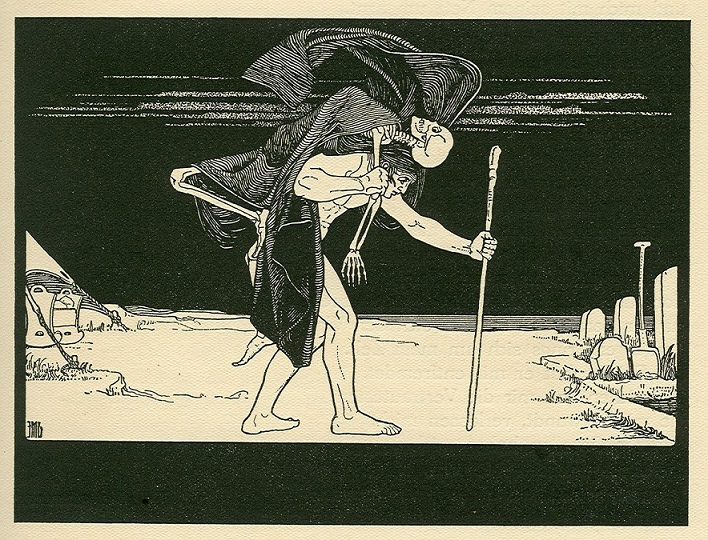Summary | Excerpt | Reading Guide | Reviews | Beyond the Book | Read-Alikes | Genres & Themes | Author Bio

A Novel
by Taffy Brodesser-AknerThis article relates to Long Island Compromise
 Taffy Brodesser-Akner's Long Island Compromise follows the Fletcher family, with their Jewish identity acting as one of the central themes. When someone in the family faces a mishap, they allude to a "dybbuk" as the driving factor. A "dybbuk," or "dibbuk," in Jewish folklore is an evil spirit that takes possession of a person's body, and it leaves only once its goal has been accomplished or it has been exorcised. The term is a shortened version of the Hebrew phrase "dibbuk me-ru'aḥ ra'ah," which means "a cleavage of an evil spirit."
Taffy Brodesser-Akner's Long Island Compromise follows the Fletcher family, with their Jewish identity acting as one of the central themes. When someone in the family faces a mishap, they allude to a "dybbuk" as the driving factor. A "dybbuk," or "dibbuk," in Jewish folklore is an evil spirit that takes possession of a person's body, and it leaves only once its goal has been accomplished or it has been exorcised. The term is a shortened version of the Hebrew phrase "dibbuk me-ru'aḥ ra'ah," which means "a cleavage of an evil spirit."
The first mention of a dybbuk in Long Island Compromise is in the context of a machinery malfunction at the family's factory. An unexplainable accident involving a series of cables snapping is referred to as "a dybbuk in the works."
The author explains, "the phrase was a cross-contamination of [Carl's father's] factory work and the terrible fables told in the Jewish ghettos that either warded off or provoked unexplainable happenstance like an infestation of ants in a sugar bowl or Cossacks murdering your siblings in front of you. A dybbuk, as tradition tells us, is a miserable soul that cannot progress to a heavenly rest and instead stays on Earth and takes over someone else's body, displacing the person's soul in order for the miserable soul to do its final bidding."
The belief in dybbuks became particularly widespread in the 16th and 17th centuries in Europe, especially in literature popular among German and Polish Jews. It was believed that the dybbuks were demons resulting from the spirit of a dead person who was not laid to rest properly. This belief arose around the same time as that of "gilgul"—the Jewish understanding of the transmigration of the soul (or reincarnation).
In Long Island Compromise, incidents of a wide variety are declared to be the result of "a dybbuk in the works"—from one of the kids getting in trouble at school, to an alarm clock stopping for no apparent reason, to the daughter's refusal to listen to her mother. The saying "a dybbuk in the works" is such an ingrained colloquialism within the family that even Carl's kidnapping before it is solved is reduced to "a brief period when there was a dybbuk in the works."
However, despite the Fletcher family's frequent referencing, a scene in the story between the eldest son Nathan and a rabbi suggests the belief in dybbuks is not universal in Jewish culture. In response to Nathan's question of whether he believes in them, the rabbi responds, "I guess some mystics would say yes. The more practical people would say no. It's a big question. Belief. Who knows?"
Dybbuk woodblock illustration by Ephraim Moses Lilien, 1908, courtesy of Wikimedia Commons
Filed under Places, Cultures & Identities
![]() This article relates to Long Island Compromise.
It first ran in the August 21, 2024
issue of BookBrowse Recommends.
This article relates to Long Island Compromise.
It first ran in the August 21, 2024
issue of BookBrowse Recommends.
Fanaticism consists in redoubling your effort when you have forgotten your aim
Click Here to find out who said this, as well as discovering other famous literary quotes!
Your guide toexceptional books
BookBrowse seeks out and recommends the best in contemporary fiction and nonfiction—books that not only engage and entertain but also deepen our understanding of ourselves and the world around us.